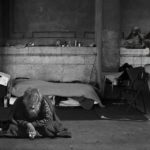The COVID-19 coronavirus has crippled economies across the globe and killed over five million people worldwide. It is a true global pandemic affecting the way that most of the world goes about their daily lives.
Military service members, veterans, and their families are not immune to the ravages of COVID-19; after all, they live in the same world and suffer from the same conditions as everyone else. Thousands of active U.S. service members were sickened by the disease, and dozens have died from COVID since it broke out of China and into the rest of the world back in 2019.
More than 80 active service members have died from COVID-19, and that is indeed a national tragedy. But an even greater tragedy is the perpetual epidemic of suicide. In 2020 alone, there were 580 suicides among currently-serving service members, an increase of 15% from the previous year. For you scorekeepers out there: 80 dead from COVID in three years, 580 dead from suicide in one year. And while no suicide is “typical,” statistics reveal a profile of young, healthy, male enlisted service members as the ones who most often take their own lives. “Young and healthy” tend to be the category of people least affected by COVID, which makes the comparison between the two causes of death even starker.
Suicide caused more than seven times the number of active service members last year alone than COVID has since its beginning. That’s what makes suicide, not COVID, the real epidemic for service members and veterans. While we are beginning to understand more and more about COVID, the reasons for suicide are extraordinarily complex, making its prevention a wicked problem for leaders, policymakers, medical professionals, and current and former service members.
I’m not going to pretend to know what the solution is for preventing military suicides. No mask, and no vaccination, are going to help (not that COVID masks or vaccines are particularly helpful either). The purpose of this article is simply to help call attention to the fact that suicide is a far, far bigger problem in the active military and veteran communities, and to encourage veterans in need to reach out for the help they need.
As I mentioned during one of my appearances on the American Warrior Radio show, America needs her veterans. Each of us has a “second mission” to perform for our countries, our comrades, and ourselves. If you–military or civilian–need help, get it. The Veterans‘ Crisis Line is 1800-273-8255. Call it if you need it. Call it if you think you need it. And in the meantime, read “The Morning After I Killed Myself.” You’ll thank me later.
_________________
Scott Faith is a veteran of a half-dozen combat deployments and has served in several different Special Operations units over the course of his Army career. Scott’s writing focuses largely on veterans’ issues, but he is also a big proponent of Constitutional rights and has a deep interest in politics. He often allows other veterans who request anonymity to publish their work under his byline. Scott welcomes story ideas and feedback on his articles and can be reached at havokjournal@havokmedia.com.
Buy Me A Coffee
The Havok Journal seeks to serve as a voice of the Veteran and First Responder communities through a focus on current affairs and articles of interest to the public in general, and the veteran community in particular. We strive to offer timely, current, and informative content, with the occasional piece focused on entertainment. We are continually expanding and striving to improve the readers’ experience.
© 2024 The Havok Journal
The Havok Journal welcomes re-posting of our original content as long as it is done in compliance with our Terms of Use.



